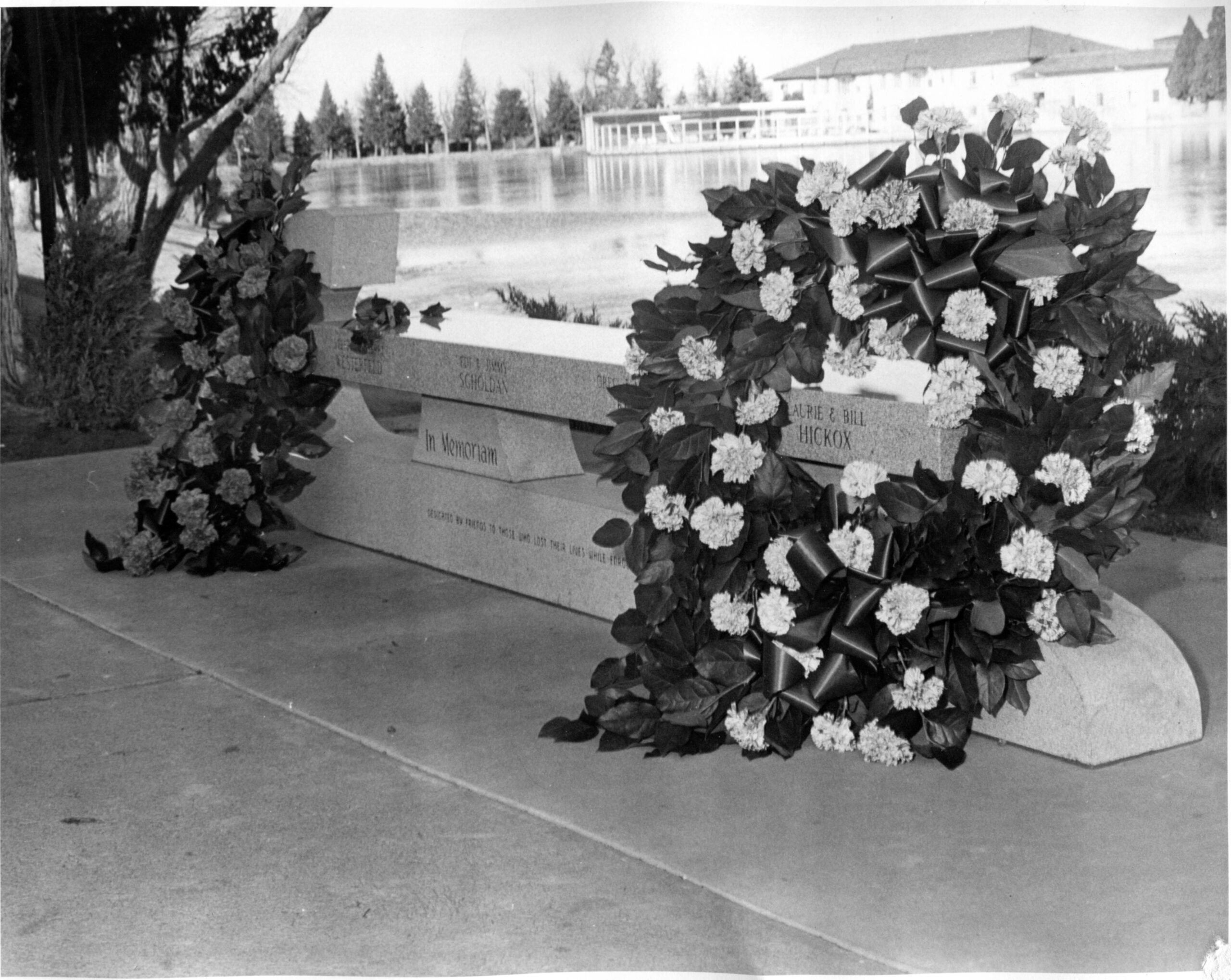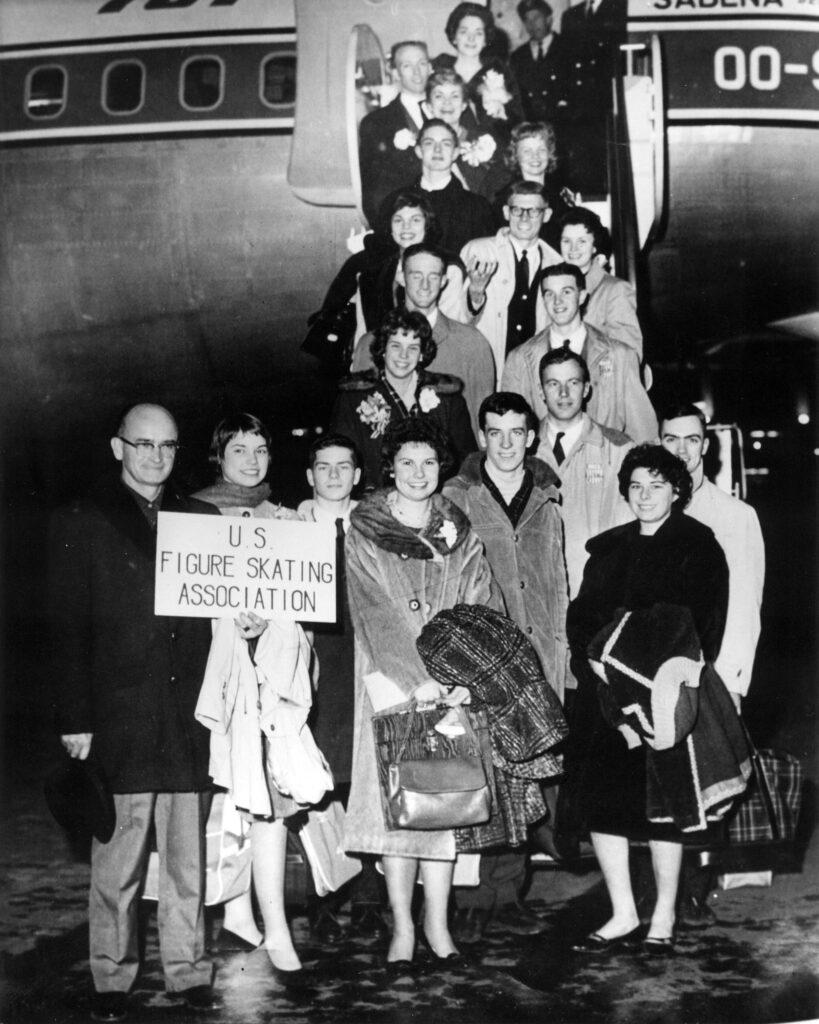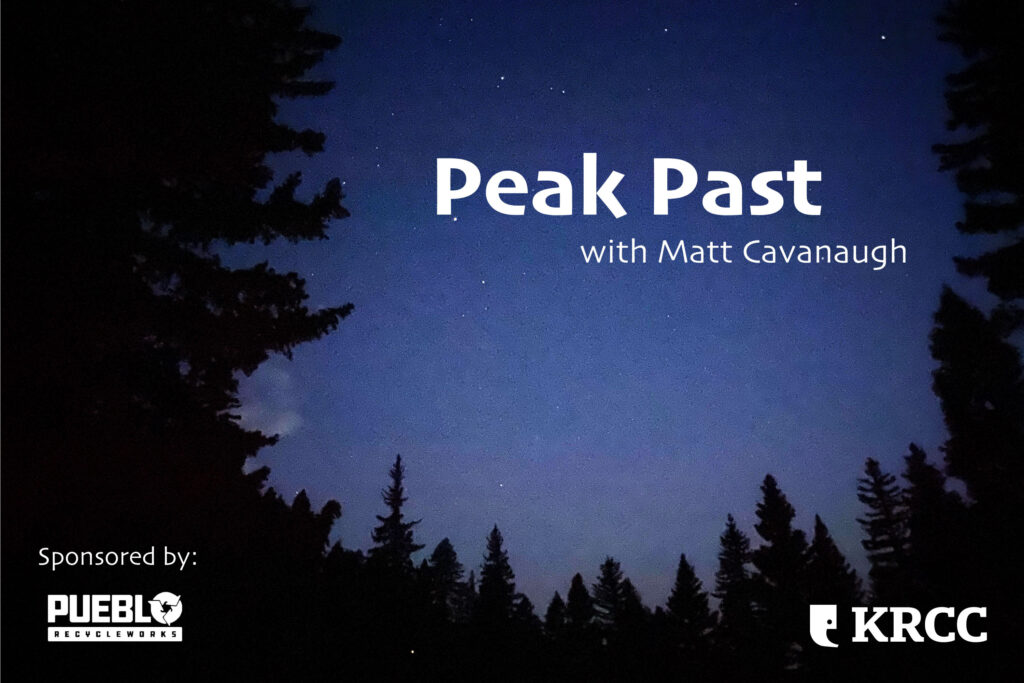
This article is part of KRCC's 'Peak Past' essay series.
When I first visited the new U.S. Olympic and Paralympic Museum in Colorado Springs, one display nearly put me on the ground.
It was a black-and-white photograph with a couple dozen pearly white smiles boarding an airplane on a tarmac. Those smiling kids and coaches were members of the U.S. Figure Skating Team.
Hours later they would all be dead.

I was with my daughters when I saw that picture. I wanted to know more, started to tear up, but also didn’t have the time because my girls had already moved on to the next display. I insisted on holding their hands when I caught up.
On Feb. 15, 1961, the entire U.S. Figure Skating team crashed outside of Brussels on their way to a World championship.
The team had just finished U.S. Nationals, held at the Broadmoor World Arena. A Colorado Springs girl, 17-year-old Steffi Westerfeld, who had been the prom queen at Cheyenne Mountain High School, led on the first day of competition, and finished second overall to another American phenom, 16-year-old Laurence Owen.
Onboard with Steffi was her 25-year-old sister Sherri, presumably acting as her little sister’s chaperone. Laurence’s mother was aboard as a coach; Laurence’s sister was on the team and on the plane too.
I like to think that, before impact, the presence of family comforted these women. Maybe by holding hands they felt some warmth in their last moments.
I think about them now as we lose thousands of Americans due to COVID-19 every day. Olympians, skaters, daughters—in the end we’re all the same, because in the end everything is taken from everybody. Tragedies like these remind us to hold our loved ones a little tighter.
I know I will. I hope you do too.
Until our next mountainside chat—be good, be well, and no matter what, climb on.
See the display at the U.S. Olympic and Paralympic Museum
Museum hours:
Sunday: 10 a.m. to 5 p.m.
Monday: 10 a.m. to 5 p.m.
Tuesday and Wednesday: Closed to general admission
Thursday: Noon to 7 p.m.
Friday: Noon to 7 p.m.
Saturday: 9 a.m. to 6 p.m.
Tickets:
Adult (13+) : $24.95
Child (3-12): $14.95
Child (under 3): Free
Senior (65+): $19.95
Military (With ID): $19.95
First Responders (With ID): $19.95
Plan your visit and buy tickets here.

Peak Past (formerly Peak Perspectives) is a weekly segment written and voiced by Matt Cavanaugh, a lieutenant colonel in the U.S. Army and a resident of Manitou Springs where he lives with his wife and two young children. Through his writing, Cavanuagh explores life in the Pikes Peak region, including the gradients and subtleties of our lives in the shadow of America's Mountain.
You can find more work by Cavanaugh here.
KRCC's Abigail Beckman manages the "Peak Past" series. The opinions expressed in this publication are those of the authors. They do not purport to reflect the opinions or views of KRCC or Colorado Public Radio.
Peak Past is sponsored by Pueblo Recycle Works.
The U.S. Olympic & Paralympic Museum is an underwriter of KRCC.
Editor's Note: A previous version of this story identified the team as the U.S. Olympic Figure Skating Team. There were no Olympic Games in 1961. An error was also made in that the team was headed to the World Championships, not the European Championships, as previously written. KRCC regrets the error.









